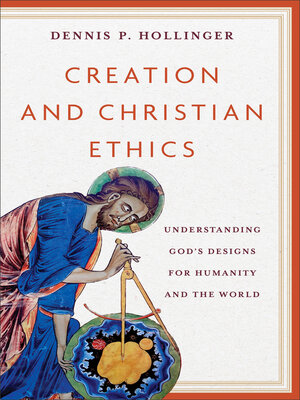Creation and Christian Ethics
ebook ∣ Understanding God's Designs for Humanity and the World
By Dennis P. Hollinger

Sign up to save your library
With an OverDrive account, you can save your favorite libraries for at-a-glance information about availability. Find out more about OverDrive accounts.
Find this title in Libby, the library reading app by OverDrive.



Search for a digital library with this title
Title found at these libraries:
| Library Name | Distance |
|---|---|
| Loading... |
Creation is a foundational pillar of the biblical storyline, yet it plays little role in contemporary evangelical ethics. Seeking to correct this oversight, Dennis Hollinger employs the creation story and creation themes throughout Scripture as a foundation for Christian ethics.
After demonstrating why creation is theologically significant and important for Christian ethics, Hollinger develops major creation paradigms that provide ethical guidance on a wide range of issues, including money, sex, power, racism, creation care, social institutions, and artificial intelligence, among many others. Creation and Christian Ethics shows throughout that the triune God creates from love, and in that creation are moral designs for humanity's journey in God's world.
Professors and students of Christian ethics will find this a valuable resource for the classroom, while pastors and church leaders will benefit from personal and small-group study.
After demonstrating why creation is theologically significant and important for Christian ethics, Hollinger develops major creation paradigms that provide ethical guidance on a wide range of issues, including money, sex, power, racism, creation care, social institutions, and artificial intelligence, among many others. Creation and Christian Ethics shows throughout that the triune God creates from love, and in that creation are moral designs for humanity's journey in God's world.
Professors and students of Christian ethics will find this a valuable resource for the classroom, while pastors and church leaders will benefit from personal and small-group study.







